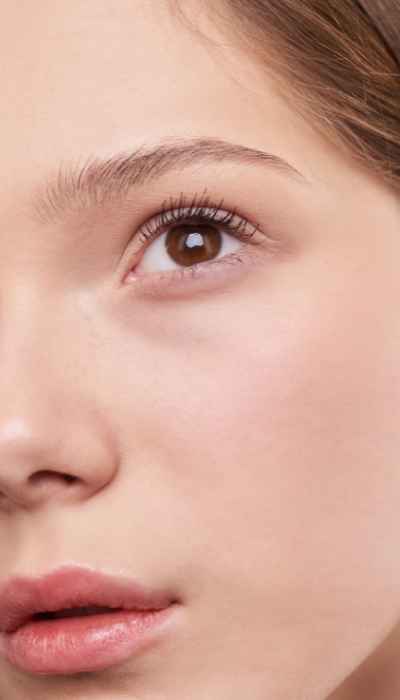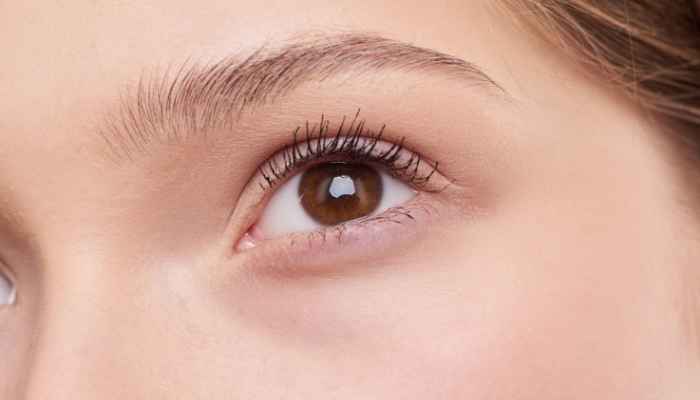Last Updated on July 30, 2024 by Prissila Murillo
We’ve all had to experiment with our skincare routines to discover what works best for us individually. As a rule, skincare is never a one-size-fits-all regimen. And because there is so much variation in skin types and individual allergies, one has to be careful with both cleansing and moisturizing routines.
This is especially true for those of us who suffer from dehydrated skin. The key is to keep your skin moist, hydrated, and clean while preventing dehydrated skin, which is prone to cracking or even worse – infection. That’s why we put together these lists of the top ingredients to use and avoid if you have dehydrated skin.
Ingredients to Use for Dehydrated Skin
Ceramides
Ceramides are a must-have in the skincare routine of anyone with dry skin. They are fatty acids your skin can use to restore moisture and lock in moisture no matter the weather. You can find ceramides in many different skincare products, such as cleansers and moisturizers, so don’t be shy to work them into as much of your skincare routine as possible!
Check out these great ceramide-containing products from Cerave:
Hyaluronic Acid
If hyaluronic acid isn’t already part of your skincare routine, it should be. In addition to having amazing moisturizing properties, it also has anti-aging properties helping to minimize fine lines and wrinkles. Pro tip: apply your hyaluronic acid moisturizer on slightly damp skin to lock in moisture and have glowing skin by morning.
Check out these great hyaluronic acid-containing moisturizers
- The Ordinary Natural Moisturizing Factors + HA
- CeraVe Hydrating Hyaluronic Acid Serum
- The Ordinary Hyaluronic Acid 2% + B5
Lactic Acid
Another great acid, lactic acid is the perfect choice for gently removing dead skin and revealing your radiant, new healthy skin underneath. This is excellent for removing signs of uneven texture, including wrinkles and fine lines, and speeding up the skin’s cellular growth. However, since it is an exfoliant, just make sure not to use it too often if it’s at a high concentration!
- The Ordinary – Lactic Acid 10% + HA
- SUNDAY RILEY – Good Genes All-In-One Lactic Acid Treatment
- Youth To The People- Kombucha + 11% AHA Exfoliation Toner with Lactic Acid
Aloe Vera
While excellent for treating sunburns and other skin irritants, aloe vera is also a naturally abundant moisturizer! It works primarily by sealing in the skin’s existing hydration and oils. And as a bonus, it also has antimicrobial and antiseptic properties that clean out dirt and other potential infections, so it doubles as a moisturizing cleanser!
Shea Butter or Cocoa Butter
Both excellent and naturally plant-based moisturizers (shea butter comes from a seed, while cocoa butter comes from a bean), are probably the two best choices for heavy-duty moisturizing. To be clear, they have very different textures: shea butter is soft, wet, and pliable, while cocoa butter is hard. Nevertheless, each has unique benefits – shea butter as a hypoallergenic solution, and cocoa butter in treating other skin conditions like dermatitis. If you want to go for something a bit gentler and easier to apply, especially if you are acne or breakout-prone, you may want to first try shea butter before experimenting with cocoa butter.
Ingredients to Avoid if You Have Dehydrated Skin
Alcohol
Alcohol is, unfortunately, an ingredient that we find in many skincare and makeup products. In addition to being extremely drying and irritating on its own, it also can worsen any skin conditions like eczema, rosacea, and psoriasis. Luckily, this ingredient is often marked right on the label, which helps in easily avoiding products that include it. Be sure to avoid all alcohols, including denatured alcohol and isopropyl alcohol.
Sulfates
Sulfates are often found in cleansers, as their purpose is to rid the skin of dirt and oil. However, cleansers containing sulfates are often harsher than others, as they can be damaging and irritating to those with dry or sensitive skin. Fortunately, there are plenty of options for more gentle cleansers that are just as effective at removing dirt and debris. With that being said, it is recommended to avoid cleansers with sulfates altogether.
Fragrance
Fragrances are another ingredient you should avoid at all costs if you have dry skin. Fragrances are often made up of hundreds of ingredients that often don’t have to go on the label of the skincare or makeup product. Due to this, you never really know what you’re putting on your skin. For dry skin types especially, not knowing what’s on your skin can lead to worsened dryness and irritation. So we recommend you avoid fragrance at all costs.
Glycolic Acid
Oftentimes, people with dry skin think that exfoliating will get rid of the dryness and irritation. And while exfoliating to a degree is necessary and can help, those with dry skin are more prone to over-exfoliation. This is why we recommend staying away from strong chemical exfoliants, such as Glycolic Acid. This strong chemical exfoliant can end up doing more harm than good to your dry skin. If you’re looking for ways to exfoliate, we recommend gentler exfoliants such as AHAs or lactic acid (see above).
Silicone
Many people with oily or acne-prone skin avoid silicones because of the clogging effect they are usually known for. However, that is not the only effect they can have. On people with dry skin, silicones can lead to increased dryness by throwing off your natural skin turnover or regulatory processes. Keep in mind that when you try to avoid silicones, the most common type used in skincare and makeup products will be labeled as “dimethicone”.
Final Words…
So what did you think of our lists of ingredients to use or avoid for dehydrated skin? Did some work better for you than others? Share your thoughts in the comments below or tag us on Instagram @offonfriday. And if there is an Insta experience you’d like us to see, just use #SuccessibleBeauty for a chance to be reposted.
How do you treat dehydrated skin?
You need to focus on your skincare routine and general health if you want to cure dry skin. This entails both hydrating internally and topically to cure dehydration. Use a mild cleanser and lukewarm water to wash. Use an essence, a hyaluronic acid serum, or a gentle exfoliant, and apply an essence.
What are the skin signs of dehydration?
Your skin is low in water if it is dehydrated. It may also be dull-looking, dry, and irritating. It’s possible that your general tone and complexion are uneven, and your fine wrinkles are more obvious. Scaly skin, white flakes, redness, and irritation are symptoms of dry skin.
Can drinking water fix dehydrated skin?
Skin will become rigid and feel harsh if the epidermis’ top layer doesn’t have enough water. Despite this association, however, there is little evidence that drinking more water has any effect on the hydration or look of the skin.


